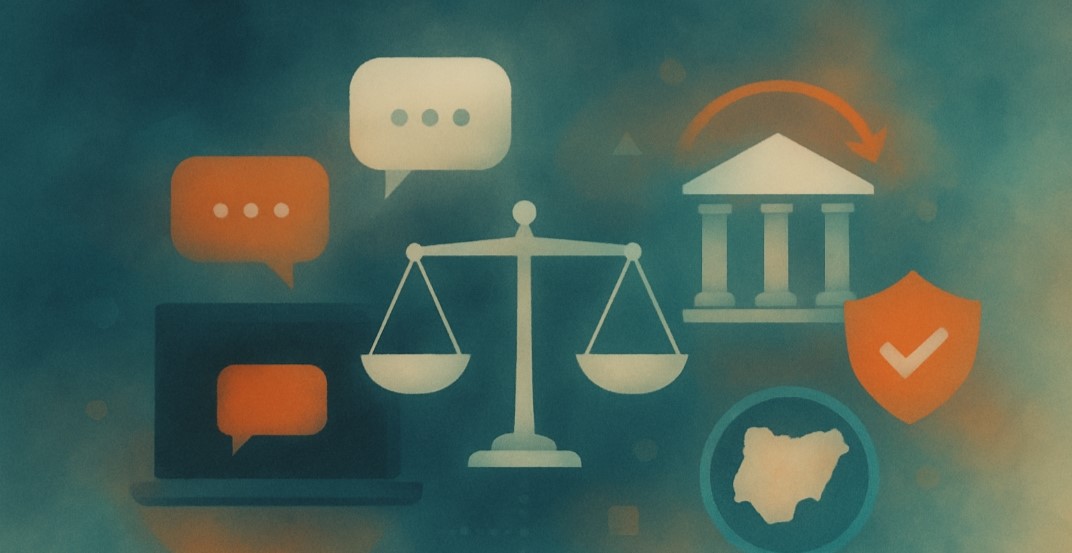
The relentless march of digitalization is reshaping industries globally, and Nigeria's legal sector is no exception. As commercial interactions and societal engagements increasingly migrate to online platforms, the nature and complexity of disputes are evolving. This digital transformation necessitates a paradigm shift in how Nigeria approaches dispute resolution, urging an adaptation of traditional methods and an embrace of innovative strategies to ensure justice remains accessible, efficient, and effective in a rapidly changing environment.
The digital age has ushered in a new spectrum of disputes. E-commerce transactions, once a novelty, are now commonplace, giving rise to conflicts over online contracts, consumer rights, and defective goods or services. The proliferation of data and digital assets has led to an increase in disputes related to data privacy breaches, intellectual property infringement in the digital realm, and the multifaceted challenges of cybercrime. Furthermore, the borderless nature of the internet means many of these disputes transcend geographical limitations, adding layers of jurisdictional complexity. The sheer volume of online interactions also contributes to a potential increase in the number of disputes requiring resolution.
Nigeria's established dispute resolution mechanisms – primarily litigation, arbitration, and mediation – are gradually interfacing with technology. The COVID-19 pandemic acted as a significant catalyst, accelerating the adoption of digital tools within the judiciary. Practice Directions issued by the National Judicial Council and various courts, such as the Lagos State Judiciary (Remote Hearing of Cases) Covid-19 Pandemic Period Practice Direction and the Federal High Court of Nigeria Practice Direction for the Covid-19 Period, paved the way for electronic filing of processes, electronic service of court documents and hearing notices (via email, WhatsApp, etc.), and virtual court sittings using platforms like Zoom, Microsoft Teams, and Google Meet.
The Evidence Act 2011 was a landmark development, particularly Section 84, which provides for the admissibility of electronically generated evidence, provided certain conditions are met regarding the reliability of the computer systems producing such evidence. This has been pivotal in enabling courts to consider digital communications, records, and other forms of electronic data as valid evidence. However, the consistent application and interpretation of these provisions, along with ensuring the integrity and authentication of digital evidence, remain areas requiring ongoing attention and development.
Online Dispute Resolution (ODR) represents a more holistic integration of technology into dispute resolution processes. It encompasses a range of mechanisms, including e-negotiation, e-mediation, and e-arbitration, conducted partially or wholly online. The potential benefits for Nigeria are substantial: enhanced accessibility for parties irrespective of location, significant cost reductions, increased speed and efficiency in resolving disputes, and the ability to handle a high volume of cases, particularly smaller claims.
In Nigeria, ODR is gradually gaining traction. The Institute of Chartered Mediators and Conciliators (ICMC) has launched an ODR Centre and platform designed to help parties resolve disputes with Nigerian interests from anywhere in the world. This platform offers services like diagnosis, virtual expert negotiation, mediation, evaluation, and arbitration. While such initiatives are commendable, widespread adoption of ODR faces hurdles. These include the digital divide – disparities in access to technology and internet connectivity across the country – cybersecurity concerns, a general lack of awareness and trust in online processes, and the need for a more comprehensive legal and regulatory framework specifically addressing ODR. Currently, Nigeria lacks specific overarching legislation for ODR, though existing ADR laws are often interpreted to accommodate its use.
Several cutting-edge technologies hold immense promise for revolutionizing dispute resolution:
To effectively harness the potential of digital dispute resolution, Nigeria must adopt a multi-pronged approach:
Navigating this evolving landscape can be complex for businesses and individuals. Consulting firms with expertise at the intersection of law, policy, and technology play a crucial role. They can provide invaluable assistance in understanding the legal implications of digital transformation, developing effective ODR strategies, designing internal dispute resolution frameworks that leverage technology, and contributing to the broader discourse on policy and legislative reform through research and professional writing.
The digital age presents both challenges and unprecedented opportunities for dispute resolution in Nigeria. Adapting traditional mechanisms and strategically embracing new technologies like ODR are not merely optional but essential for maintaining a justice system that is fit for purpose in the 21st century. By fostering a supportive legal framework, investing in infrastructure and capacity, and promoting a culture of digital literacy and trust, Nigeria can ensure that its dispute resolution mechanisms are more efficient, accessible, and ultimately, more effective in delivering justice for all its citizens. The journey requires commitment and collaboration, but the destination – a digitally empowered and resilient justice system – is well worth the endeavor.